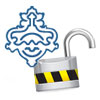With LinkedIn: The Bell Tolls For Simple Password Hashing
This week’s revelations about leaks of user passwords from the professional networking site LinkedIn, dating Web site eHarmony.com and music site Last.fm suggest that even tech-savvy firms are slow to accept that hashes -a once-reliable technology for storing data online – now offer scant protection for sensitive data.










